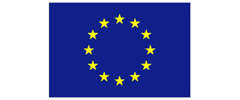Stockholm Convention : the way towards the official listing of endosulfan as a POP (Persistent Organic Pollutant)
NGOs representatives during POPRC 6th
25.10.2010 |Elisabeth Ruffinengo

Endosulfan recommanded for listing as POP during next Conference of the Parties
Endosulfan is an organochlorine insecticide long-known for its dramatic health effects on rural populations and its toxicity for bees, but still manufactured and in use in some developing countries – some 40 countries already banned endosulfan (source: PAN/ IPEN publication). Whereas there is a consensus among the Committee’s members – nominated by the Parties but not representatives of their State, India, the biggest endosulfan manufacturer, kept blocking the adoption of a recommendation by the Committee to the CoP (Conference of the Parties) to list endosulfan in Annex A of the convention (phase-out of production and use, with exemptions).
Debromination and recycling of products containing brominated flame retardants (POP-BDE)
Recycling products containing POP-BDE has also been one of the main issues discussed during the meeting. Some POP-BDE, which have already been phased out by some major electronics manufacturers, do have the properties making them candidates for identification as “new” POPs. If not properly “debrominated”, recycled products can still contain some of them. To prevent hazardous flame retardants to be found in recycled products, the CR adopted a recommendation for the suspension of recycling of materials containing brominated flame retardants before appropriate debromination process are available and feasible. WECF is concerned with the fact that amongst contaminated products, children’s toys containing POP-BDE have been identified.
A new point emerged on the international agenda, already at the heart of ongoing discussions at European level the cocktail effect of chemical mixtures will be one of the points later investigated by POPRC. Decisions regarding HBCDD and SCCP are still pending. Members from IPEN representing Alaska and Canada (Inuit populations) expressed their concern regarding impacts of POP on local populations, and the consequences of climate change, i.e. regarding the melting of permafrost (a part of land turned to ice for decades) and consecutive liberation of POPs in the environment.
Note: so-called « new » POPs are the ones originally not listed under the Stockholm Convention. Former POPs are substances such PCB, organochlorine pesticides, etc.) known as the « dirty dozens » pollutants, representing the most hazardous pollutants ever known so far.
To know more about POPRC 6th, visit the IPEN website
Related News
Getting to the Future We Want
4-7 November, Brussels: European Environmental Bureau’s (EEB) Annual Conference
12.11.2018
Human Biomonitoring for Europe
Vienna, 26 September: stakeholder forum
28.09.2018
A life without plastic, wouldn't it be fantastic?!
Interview with Charlotte Schueler of @PlastikfreiLeben, who lives a zerowaste life in Munich, Germany and shares her experiences to her 25.2 thousand followers on instagram & 37.2 thousand followers on facebook
14.09.2018
Calling for periods free from plastic & hazardous chemicals
Letter to Frédérique Ries, MEP, European Parliament on behalf of the #BreakFreeFromPlastics movement
04.09.2018







































